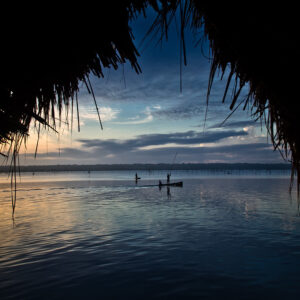Benin, land of the former Kingdom of Dahomey, with its geographical fibres vibrating in cultural riches and history that spans thousands of years. Part of this past touches upon the Transatlantic Slave Trade of the 1600s that lasted around 300 years as Ouidah — the nation’s coastal town, was a main port from where many Africans were captured and inhumanely shipped abroad.
During the 17th and 18th centuries, European colonisers held more than one million African men, women and children in Ouidah’s Portuguese-claimed Fort before shipping them across the Atlantic in abominable conditions. In Benin, pillaged for the slave trade by Portugal, Britain and France, Africans were captured. Ouidah, about 40 kilometres (25 miles) from Benin’s economic hub today of Cotonou, was one of the main posts to the Americas, according to research at Yale University. The ports in Benin are comparable to slave ports in modern-day Ghana and the swathe of Central Africa that today encompasses Angola, the Republic of Congo and the Democratic Republic of Congo.






